Machine Dreams in Equity
A professor, a pronoun, and the polite Canadian inquisition that mistook censorship for compassion.
If you believe in free speech—not the bumper sticker, but the unruly, rabid mongrel that snarls at polite society—then you can help keep it alive here. Every paid subscription buys me time to write without kowtowing to the kind of people who think “problematic” is an argument.
It’s six dollars a month. Canadian dollars. Which means it’s even less than you think—practically pocket lint if you’re south of the border. For that, you’ll get at least three heretical essays a week, plus open comments.
People always say, “Oh, it’s just a cup of coffee.” True. But when you get to the Substack counter, please pick my coffee. I guarantee it’s cheaper than Starbucks, and it comes spiked with the bitterness of reality—foam-free, censorship-free, and worth every loonie. Cheers.
Rewritten in Nov. 2025, originally July 2024.
“We have now sunk to a depth at which restatement of the obvious is the first duty of intelligent men.”
— George Orwell
The Finlayson Affair:
The Suspension, The Purge, and the Magical Bureaucratic Surrealism of Our Time
I. The Suspension
I was lifted—no, politely kidnapped—on my way to class, steered into a room the size of a broom closet and with the same perfume: stale mop water mixed with someone else’s rage. The chair was plastic, the walls were that peculiar bureaucratic beige that makes despair seem policy-approved.
Fifteen minutes later, I was returned to the corridor, reduced to a citizen with two objects and one commandment: a laptop, a knapsack, and a letter forbidding me to speak to any living creature even vaguely connected to the university. The wording implied I should avoid mail carriers who had once delivered to the campus and taxi drivers who could locate it on a cloudy night.
My office, of nearly fourteen years, looked back at me like a house whose owners had left in winter and never returned. The plant I’d always meant to water seemed relieved. I wondered if evacuation under smoke and flame would have felt much different; at least fire admits what it’s doing.
There was no blaze, no chaos, no grand inquisition—only the small, bureaucratic obscenity of an “immediate suspension,” delivered with the solemnity of a parking ticket. Thus ended my tenure as lecturer—a title neither glamorous nor pretentious—at a university known chiefly to those unfortunate enough to be enrolled there.
Whether “professor” is a vocation or a vanity has always been an open question, mostly asked by those who mistake self-importance for philosophy. I always preferred “lecturer”—a word that implies work, not worship.
But when management and a particularly pious colleague leaked their little communiqué to a network of anti-Israel crusaders posing as journalists—trust-fund zealots hunting fascists the way medieval inquisitors hunted heretics—they canonised me overnight as a “racist teacher.”
The phrasing was surgical. Teacher—not professor—was meant to infantilise, as if I’d been caught doodling swastikas on the blackboard. Racism was the consecrating oil.
Soon enough, I was the racist professor; every university needs its scapegoat. Twenty thousand righteous souls dutifully exercised their moral deltoids online. The university knew, of course—they always do. These things never happen without the faint whiff of administrative cologne and a meeting about “optics.”
The campaign began, as such witch-burnings often do, in the vestibule of power—a colleague of the Vice-Provost, who by miraculous coincidence also happened to be the accuser in a human rights complaint against me. The entire affair was already so Kafkaesque it scarcely needed to take more than two steps sideways to stumble into full-blown magic surrealism.
II. The Purge: A Cathedral of Cowardice
The complainant herself was not a student, nor a member of any protected class, unless “chronically aggrieved” now counts as a disability. She was an obscure white woman, freshly imported from Sheridan College—the academic equivalent of a strip mall. Sheridan, famed for its animation program and not much else, produces graduates who can draw everything except conclusions.
She was, quite literally, whiter than I am, yet somehow her grievance achieved the alchemy of “standing.” This feat of bureaucratic witchcraft was blessed by the institution’s Human Rights Manager—a woman whose expertise in human rights appeared to derive from having once glimpsed a brochure left behind at a diversity brunch.
Then the complaint began to moult. Midway through, the voice changed register—like a ventriloquist dropping the dummy. Suddenly, the grievance spoke in another tongue: the voice of an Islamist professor, Wael Ramadan, a man who could curdle milk with his contempt for Jews.
His name rang a faint bell. I recalled that National Post journalist John Ivison had once profiled him as a case study in “controversial expression,” careful not to say “hate.” Ivison, in that genteel Canadian way, wrote that Ramadan “had not yet crossed the Rubicon of antisemitism.” What understatement!
The Rubicon was already behind him, dry and littered with the bones of his restraint, as he advanced toward the more serious crime of hate propaganda—a distinction acknowledged everywhere except in Humber and the University of Guelph’s Human Rights Office, that Vatican of vapidity.
At Humber and Guelph, one becomes a human-rights officer not through moral insight or legal training but by surviving enough workshops on “unconscious bias” and repeating the creed of inclusion with eyes half-closed. The very title has become clerical, a priesthood of paperwork enforcing doctrine without comprehension.
Thus, the Vice-Provost, drunk on her own sanctimony, weaponised the human-rights budget against a man she had never met—unless you count the awkward nod at a faculty lunch, where she delivered a speech so wooden termites could have felled it. She never once looked up from her script. Yet somehow I had already been designated moral contagion.
In our new clerisy, sin is not personal but institutional. One does not err; one embodies error. Bureaucracy has replaced theology, but the heresy trials continue apace. Their only update is the stationery.
Their solution was elegant in its cowardice: silence the accused, let the accusers sing. I was threatened with police arrest should I so much as ask that the defamation stop. Their idea of fairness: the liars get free speech, the slandered get a gag order.
You don’t need Kafka’s surrealism to describe such a scene—reality does the job. But still, it leaned so far into the absurd that one half-expected Gregor Samsa1 to scuttle in carrying a clipboard. The logic of Humber’s tribunal resembled magical surrealism: physics and reason obeyed only emotion. Time looped, space warped, and bureaucrats floated like minor deities of the absurd. If Kafka gave us the castle with no doors, Humber provided the castle gift shop—selling pamphlets on inclusion next to racks of torches.
My offence, for the record, was linguistic rather than moral. I had compared Hamas to Nazis—a statement as factual as tomorrow’s sunrise and, apparently, just as offensive to those who prefer the dark. Accuracy, it seems, is now a hate crime.
The exchange was brief, digital, and unremarkable: someone online declared that Israel should be wiped away; I replied that standing with Hamas was standing with Nazis. A sentence of moral geometry so simple it could be solved without algebra.
Silly me. I assumed that after seeing men decapitate concert-goers, kidnap grandmothers, and rape daughters old enough to borrow my own daughter’s sweater, one might claim the modest height of moral ground without a sherpa.
But on the modern campus, the summit is no longer truth—it’s your opponent’s feelings. If those feelings bruise, then fact itself must go into hiding. The university lowers its portcullis to defend the villagers from the dragon of your sentence.
It works like this: even if you never mentioned anyone’s ethnicity, religion, gender, or birthplace, your critics are free to insist you did—metaphysically, atmospherically, by telepathy. Because their hearts are in the right place (and have certificates to prove it), that sensation becomes truth.
Thus, has Enlightenment reason been replaced by emotion with tenure? The same students who can’t define the Enlightenment now light candles for its execution. Their professors, the bigger useful idiots, mistake this regression for progress. Che Guevara at least looked good in a beret; their idols are bearded clerics issuing fatwas on Wi-Fi.
III. The Letters of Exile
Months passed. Tulips rose, performed their brief aria, and retired. Sleep arrived wearing its boots.
Normally, when you wake, the coherence of a dream dissolves like a dusting of snow on a door handle—gone at the first touch. But this dream stayed.
In it, I entered a room that might have been carved from Kafka’s notebook and painted by Dalí. The sign above the door flickered: the first word burned away; the last two read HUMAN RIGHTS.
Inside sat a woman with glossy hair and expensive headphones around her neck, wearing a checkered blazer that fought bitterly with her jeans. She bowed too low, as if to tourists, and handed each visitor a clipboard with a red pen tethered by a cord the colour of arterial blood.
They filled their forms with the solemnity of diners ordering dessert. She read each one with the devotion of a priest tracing a psalm, then produced a velvet box. Inside: a sleek black card embossed with my name and the words We will destroy him.
“Redeem this,” she said, “in the back room. Insert it into our HATE machine—Hubris, Amorality, Threats, Evil. It converts grievance into policy. German engineering.”
The machine hummed. “Congratulations,” she read from its screen. “Correct victim categories selected. Anonymity granted—three months of defamation, renewable. Evidence not required. Wounded feelings equal assault.”
They clapped as if the parishioners had told them the offertory was complete. Then the light dimmed, the air smelled of sulphur, and I woke to the bathroom fan, my wife’s steady breathing, and the small mercy of tap water.
Reality resumed its duties. The facts remained: I had been intercepted before class, escorted to a room smelling of disinfectant and grievance, released with laptop, knapsack, and a letter forbidding speech with anyone who had ever set foot on campus—or imagined it.
My office stood empty without me, an abandonment without fire, though the method had similar heat.
The story that bought all this theatre was still small enough to fit on a postcard: a tweet, a truth, and a mob with Wi-Fi.
But the age prefers ritual to reason. It has invented a sacrament in which injury is self-anointed and redemption is the silencing of others. Chekhov would lower his eyes at the quiet cruelty; Hitchens would raise his voice at the noisy cowardice.
Between them stands me—a minor character expelled from a minor stage, watching the curtain fall to applause. In this new liturgy, grievance is truth, truth is hate, and the fire alarm is pulled not by smoke but by feeling.
And yet: I find myself awake, and unrepentant. The bathroom fan hums. Dawn does its work. I remain suspended, yes—but I have recovered one consoling certainty.
The nightmare’s machine requires darkness to run. It feeds on fear, compliance, and the soft-spoken decency of people who look away. My task, my defiance, is absurdly simple.
I intend, obstinately, to keep the lights on.
If you found value in this article and wish to support my ongoing work, please consider leaving a tip. Your support helps me continue producing uncensored content on critical issues.
Gregor Samsa is the main character in Franz Kafka’s novella The Metamorphosis (Die Verwandlung, 1915).
He’s a travelling salesman who famously wakes up one morning to find that he has transformed into a giant insect—Kafka never specifies exactly what kind. However, translators and illustrators often imagine a beetle or cockroach.



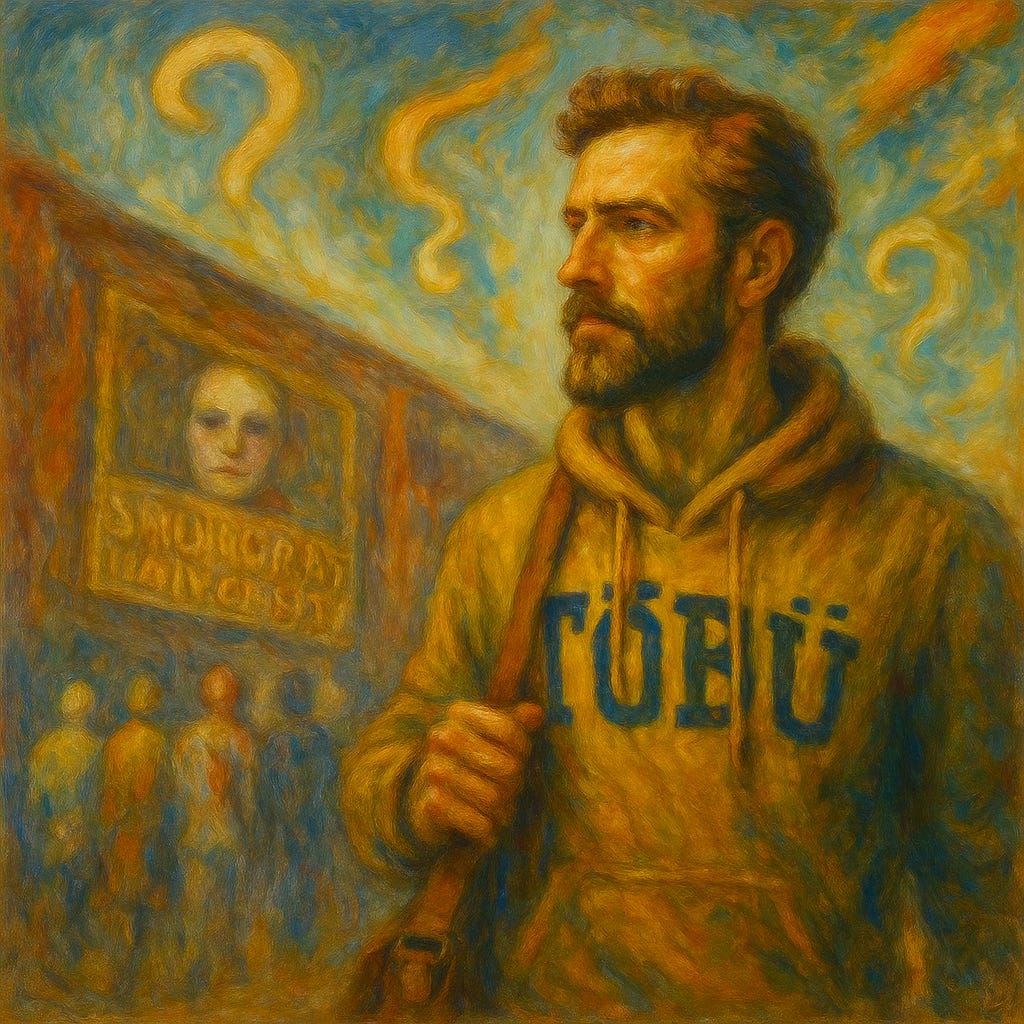

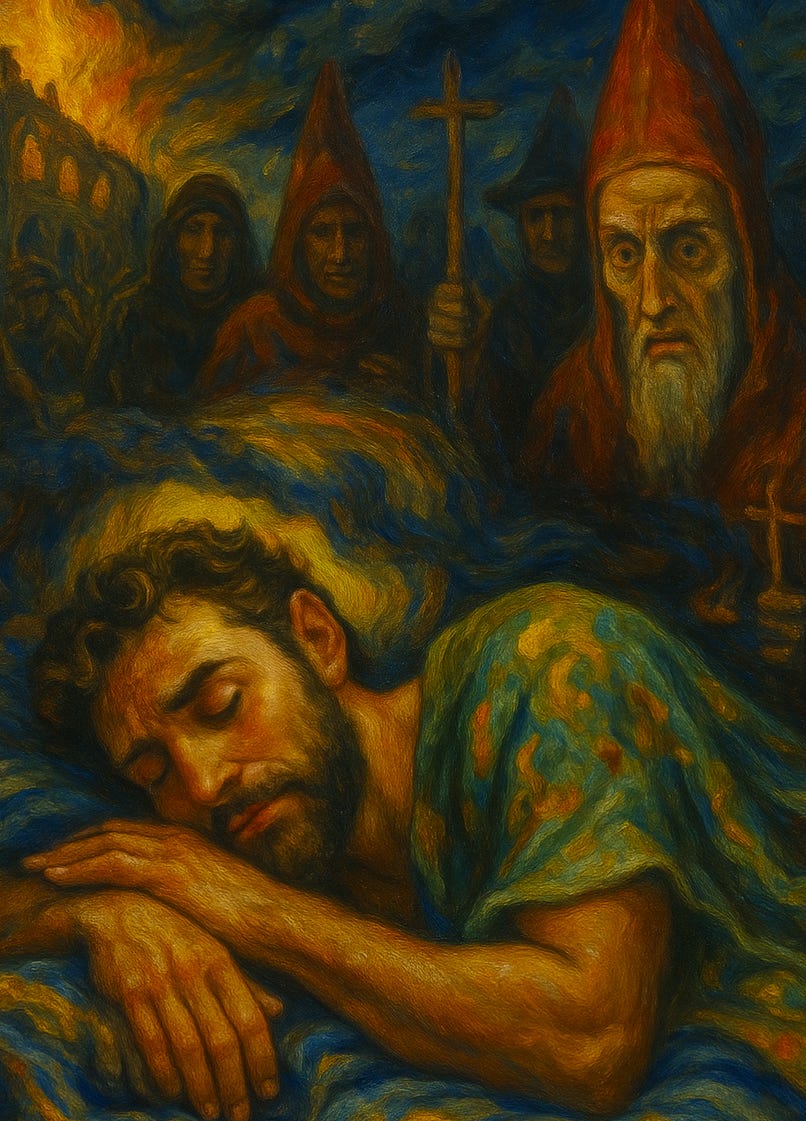
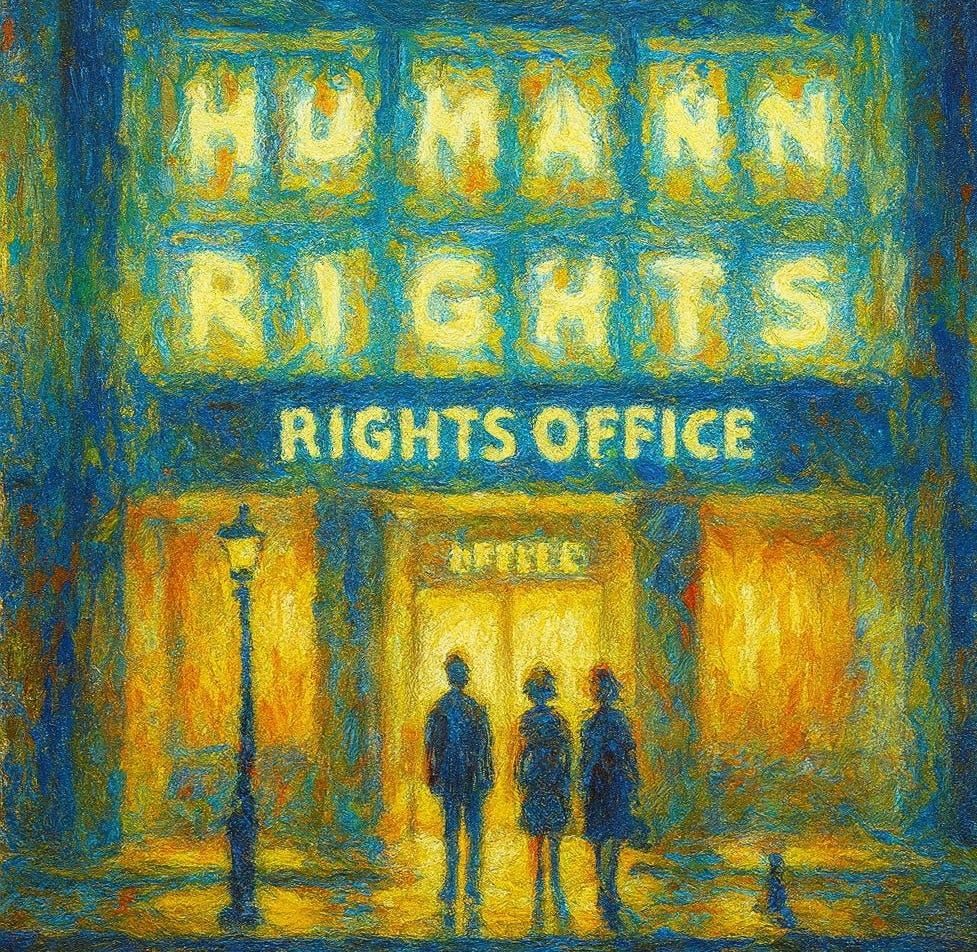
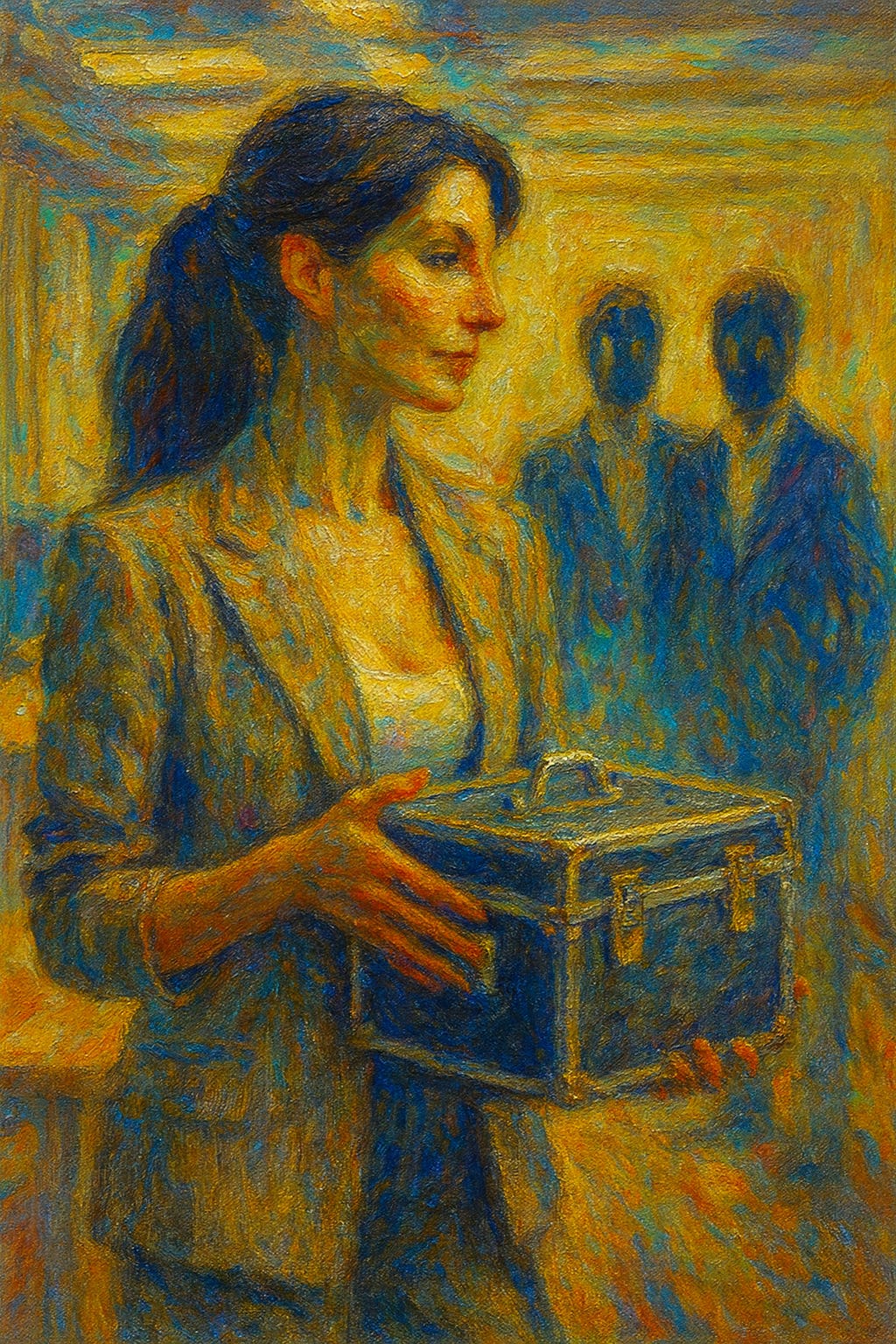
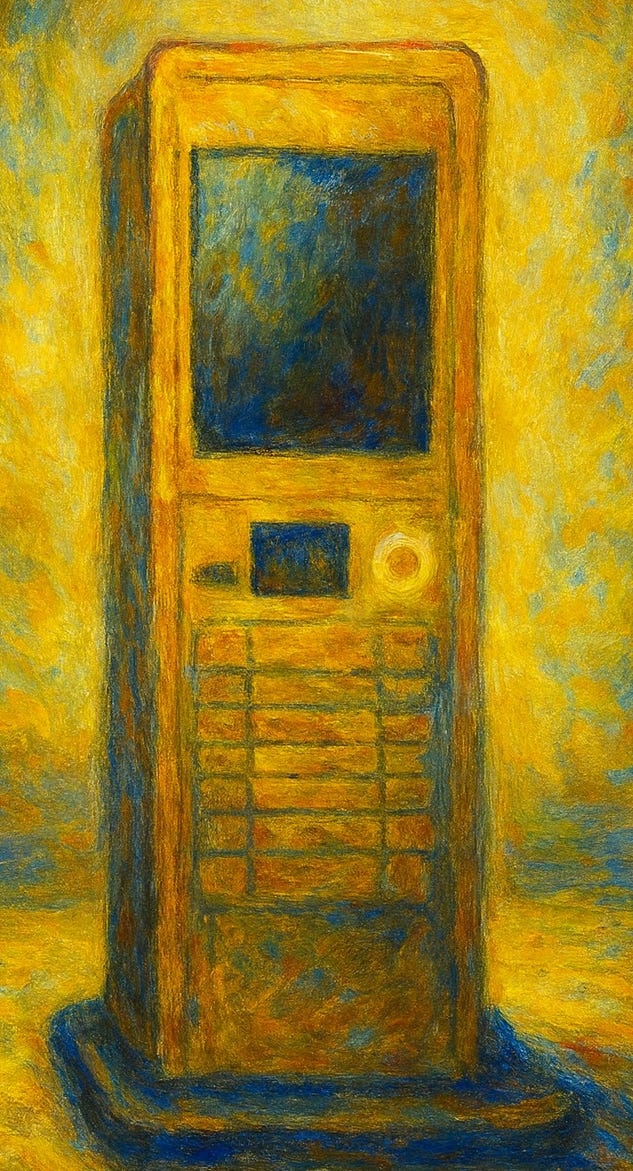

Excellent. I love your style. “Schadenfreude factory.”
“…reeks of vitriol…” haha